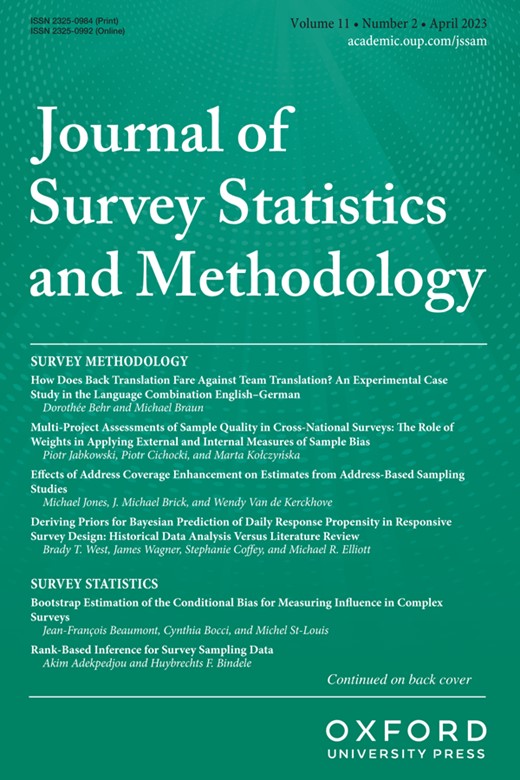-
Views
-
Cite
Cite
Brady T West, James Wagner, Stephanie Coffey, Michael R Elliott, Deriving Priors for Bayesian Prediction of Daily Response Propensity in Responsive Survey Design: Historical Data Analysis Versus Literature Review, Journal of Survey Statistics and Methodology, Volume 11, Issue 2, April 2023, Pages 367–392, https://doi.org/10.1093/jssam/smab036
Close - Share Icon Share
Abstract
Responsive survey design (RSD) aims to increase the efficiency of survey data collection via live monitoring of paradata and the introduction of protocol changes when survey errors and increased costs seem imminent. Daily predictions of response propensity for all active sampled cases are among the most important quantities for live monitoring of data collection outcomes, making sound predictions of these propensities essential for the success of RSD. Because it relies on real-time updates of prior beliefs about key design quantities, such as predicted response propensities, RSD stands to benefit from Bayesian approaches. However, empirical evidence of the merits of these approaches is lacking in the literature, and the derivation of informative prior distributions is required for these approaches to be effective. In this paper, we evaluate the ability of two approaches to deriving prior distributions for the coefficients defining daily response propensity models to improve predictions of daily response propensity in a real data collection employing RSD. The first approach involves analyses of historical data from the same survey, and the second approach involves literature review. We find that Bayesian methods based on these two approaches result in higher-quality predictions of response propensity than more standard approaches ignoring prior information. This is especially true during the early-to-middle periods of data collection, when survey managers using RSD often consider interventions.







